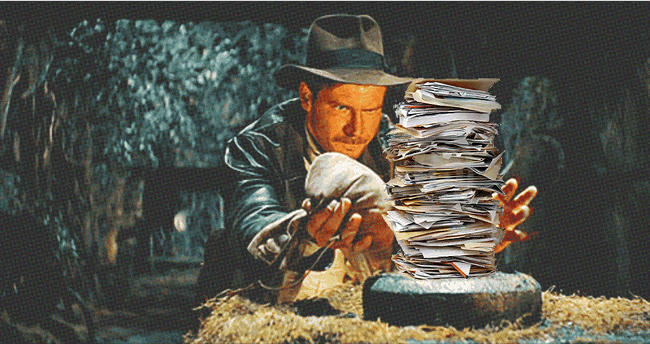 I once drafted a job description for a technical writing position, and I included the line: “Experience required interviewing SMEs in science and engineering.” My boss was confused by the term “interviewing,” which he associated with journalists cornering Senators, or possibly police interrogations. (Remember Marge Gunderson? “Oh for Pete’s sake, he’s fleeing the interview!”) But you know what I mean: We ask polite, specific questions about software, hardware, government regulations, chemical reactions, etc., and we document the answers.
I once drafted a job description for a technical writing position, and I included the line: “Experience required interviewing SMEs in science and engineering.” My boss was confused by the term “interviewing,” which he associated with journalists cornering Senators, or possibly police interrogations. (Remember Marge Gunderson? “Oh for Pete’s sake, he’s fleeing the interview!”) But you know what I mean: We ask polite, specific questions about software, hardware, government regulations, chemical reactions, etc., and we document the answers.
Now suppose that instead of interviewing people, you’re interviewing pieces of paper. Specifically, you’re trying to dig vital information out of manufacturing records to figure out whether or not a medical device was built correctly, usually thousands of miles away, possibly in a foreign country, probably weeks or even months ago. Welcome to my world.
Manufacturing includes testing, and the numbers are supposed to fall within a range. Well, what if the numbers start to drift? Every test passes, but the test result is getting closer and closer to the edge of the acceptable range. The documents are practically shouting at us that something’s going wrong, and most people can’t hear them shouting – it’s kind of like Whoville. Anyway, the test instrument is more likely to go bad slowly than the things being tested, so a quick calibration should solve the problem. Except for that one time that the drift was caused by an error that was introduced during a calibration… yes, really.
Or this one: Someone writes in the wrong number, crosses it out, and writes in the right number. Done, right? Wrong. I need that person to initial and date their correction, and not only because some auditor wants to ding me on my records. It’s also because of Future Me (I’ll get to him in a minute). Anyway, it’s usually pretty easy to get the manufacturing tech to initial and date their correction, but when the tech’s in Eastern Europe, the time zone and language can make it into an adventure.
Did I hear you say “electronic signature”? I won’t review all the reasons that we’re inundated with paper records (see Three Roadblocks to the Utopian “Paperless Office”), but suffice it to say that for a small medical device company, it’s easier to keep FDA happy with pieces of paper than with electronic records.
Sometimes I put on the Indiana Jones hat and dive into the filing cabinets to figure out why a component has been replaced in multiple machines. Well, why? Were they all installed in multiple machines by the same manufacturing tech (bad tech), or by multiple manufacturing techs on the same day (bad lot)? Some of these records go back for years, and in the end you can only interview the pieces of paper, because the people who filled them out or reviewed them aren’t with the company anymore.
This is what I mean by Future Me (which could be someone else, or could be just me with a poor memory). Part of a technical writer’s job, IMHO, is to make sure that everyone’s documents tell a coherent story. People move on, fall in love, change jobs or countries, and who’s left to tell the tale of how we used a lizard cage heat lamp to test the infrared sensor’s reaction time*? The documents are, that’s who. And if a manufacturing record gets corrected, Future Me will be grateful that I made the manufacturing tech initial and date it, because it might matter to Future Me whether the tech caught the error right away or had to come back days later to correct it. Maybe “days later” will indicate a trend. Trends are for Future Me, and as Shania says, no one needs to know right now.
I can’t tell you a lot of stories about stuff that we’ve found and old mysteries that we’ve solved because, you know, proprietary stuff. But I repeat those stories in-house, just to remind everyone that everything they document matters, even if we don’t know how it’ll matter or when. Someday, the documents will be there to tell the tale.
*(Yes. Really.)